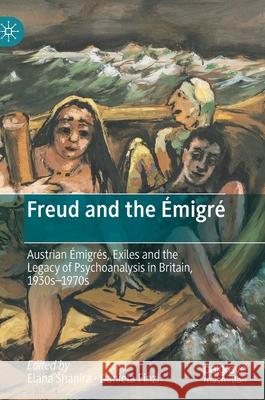Freud and the Émigré: Austrian Émigrés, Exiles and the Legacy of Psychoanalysis in Britain, 1930s-1970s » książka
topmenu
Freud and the Émigré: Austrian Émigrés, Exiles and the Legacy of Psychoanalysis in Britain, 1930s-1970s
ISBN-13: 9783030517861 / Angielski / Twarda / 2020 / 277 str.
Freud and the Émigré: Austrian Émigrés, Exiles and the Legacy of Psychoanalysis in Britain, 1930s-1970s
ISBN-13: 9783030517861 / Angielski / Twarda / 2020 / 277 str.
cena 524,53
(netto: 499,55 VAT: 5%)
Najniższa cena z 30 dni: 501,19
(netto: 499,55 VAT: 5%)
Najniższa cena z 30 dni: 501,19
Termin realizacji zamówienia:
ok. 22 dni roboczych
Bez gwarancji dostawy przed świętami
ok. 22 dni roboczych
Bez gwarancji dostawy przed świętami
Darmowa dostawa!
Kategorie BISAC:
Wydawca:
Palgrave MacMillan
Język:
Angielski
ISBN-13:
9783030517861
Rok wydania:
2020
Wydanie:
2020
Ilość stron:
277
Waga:
0.50 kg
Wymiary:
21.01 x 14.81 x 1.75
Oprawa:
Twarda
Wolumenów:
01
Dodatkowe informacje:
Wydanie ilustrowane











